Bilert, S. P., Hjortkjær, J., Alickovic, E., Shiell, M. M., Rotger-Griful, S., Zaar, J. (2021). Neural speech processing during selective listening in an audio-visual monologue vs. dialogue paradigm [Poster]. ARO 2021.
“I think technology will become better at ‘reading people’s minds’. An example could be writing on your pc just by shaping the sentences in your mind. It is going to be exciting, there will come a lot of ethical dilemmas, but from a scientific point of view, I find the prospects exciting. For comparison, it is really interesting to see, how Ear-EEG (putting electrodes in and around the ear), which we have been working with for many years, is now popping up in tiny ear-pieces everywhere, for monitoring for example sleep patterns and stress level.”
I have a split role here because I work as a principal scientist, but I am also line manager for a group of scientists. As a scientist, I mainly do research around the use of sensor technology in hearing devices. We use sensor technology to either monitor the user’s sound environment or to be able to decode what the user wants to hear. My work mainly falls within Eriksholm’s focus area called ‘Intent controlled hearing technologies’, but I also do research around the other focus areas.
I have a split role here because I work as a principal scientist, but I am also line manager for a group of scientists. As a scientist, I mainly do research around the use of sensor technology in hearing devices. We use sensor technology to either monitor the user’s sound environment or to be able to decode what the user wants to hear. My work mainly falls within Eriksholm’s focus area called ‘Intent controlled hearing technologies’, but I also do research around the other focus areas.
I am originally an electrical engineer and I hold a PhD in computer engineering within sensor technology. In my PhD thesis I used sensor technology to try to nudge people to change their behavior around energy usage at home in their households. When I finalized that project, I had become very interested in doing research in an industry setting and I chose to work within the area of health. I found that Eriksholm offered the perfect conditions for doing translational research, so my way into hearing care was actually Eriksholm.
I am originally an electrical engineer and I hold a PhD in computer engineering within sensor technology. In my PhD thesis I used sensor technology to try to nudge people to change their behavior around energy usage at home in their households. When I finalized that project, I had become very interested in doing research in an industry setting and I chose to work within the area of health. I found that Eriksholm offered the perfect conditions for doing translational research, so my way into hearing care was actually Eriksholm.
Basically, I find myself to be intrinsically motivated by most of what I do. As a scientist, what I really appreciate here at Eriksholm is that we are all working towards the same end goal, to impact the lives of people with hearing impairment. I strive to do research that impacts them. In addition to that, I really appreciate the flexibility and the freedom we have here at Eriksholm to make independent decisions within the framework of our governance.
Basically, I find myself to be intrinsically motivated by most of what I do. As a scientist, what I really appreciate here at Eriksholm is that we are all working towards the same end goal, to impact the lives of people with hearing impairment. I strive to do research that impacts them. In addition to that, I really appreciate the flexibility and the freedom we have here at Eriksholm to make independent decisions within the framework of our governance.
When wearing my scientist hat, I hope to one day be able to find technology available to everyone, based on scientific findings that I have contributed to. It would be very rewarding for me to experience that I actually made a footprint in real life which people with hearing loss can benefit from.
When wearing my scientist hat, I hope to one day be able to find technology available to everyone, based on scientific findings that I have contributed to. It would be very rewarding for me to experience that I actually made a footprint in real life which people with hearing loss can benefit from.
Well, with two small kids, I don’t really have problems finding things to do with my spare time. I am from Spain and my wife is from Italy, so we do prioritize exposing our children to Catalan and Italian communities. On Friday afternoons we often go to an organized Catalan get-together for families, and once a month we attend a similar, but privately organized Italian event.
Well, with two small kids, I don’t really have problems finding things to do with my spare time. I am from Spain and my wife is from Italy, so we do prioritize exposing our children to Catalan and Italian communities. On Friday afternoons we often go to an organized Catalan get-together for families, and once a month we attend a similar, but privately organized Italian event.
To me, that has to be the invention of the smartphone. It became available just as I started at the university, and the concept of not needing a computer was a revolution. Suddenly, I had everything I needed from, pdf-documents to timetables, right there in the palm of my hand. Smartphones have enabled a lot of people in developing countries to become connected to the world. To me innovation and science make sense when they come together and end up making a positive difference in people’s lives.
To me, that has to be the invention of the smartphone. It became available just as I started at the university, and the concept of not needing a computer was a revolution. Suddenly, I had everything I needed from, pdf-documents to timetables, right there in the palm of my hand. Smartphones have enabled a lot of people in developing countries to become connected to the world. To me innovation and science make sense when they come together and end up making a positive difference in people’s lives.
I think technology will become better at ‘reading people’s minds’. An example could be writing on your pc just by shaping the sentences in your mind. It is going to be exciting, there will come a lot of ethical dilemmas, but from a scientific point of view, I find the prospects exciting. For comparison, it is really interesting to see, how Ear-EEG (putting electrodes in and around the ear), which we have been working with for many years, is now popping up in tiny ear-pieces everywhere, for monitoring for example sleep patterns and stress level.
I think technology will become better at ‘reading people’s minds’. An example could be writing on your pc just by shaping the sentences in your mind. It is going to be exciting, there will come a lot of ethical dilemmas, but from a scientific point of view, I find the prospects exciting. For comparison, it is really interesting to see, how Ear-EEG (putting electrodes in and around the ear), which we have been working with for many years, is now popping up in tiny ear-pieces everywhere, for monitoring for example sleep patterns and stress level.
To see related publications, please follow this link and type in the scientist’s name in the free text search field. The result shows publications by this scientist during collaboration with Eriksholm Research Centre and/or with relevance to current work.
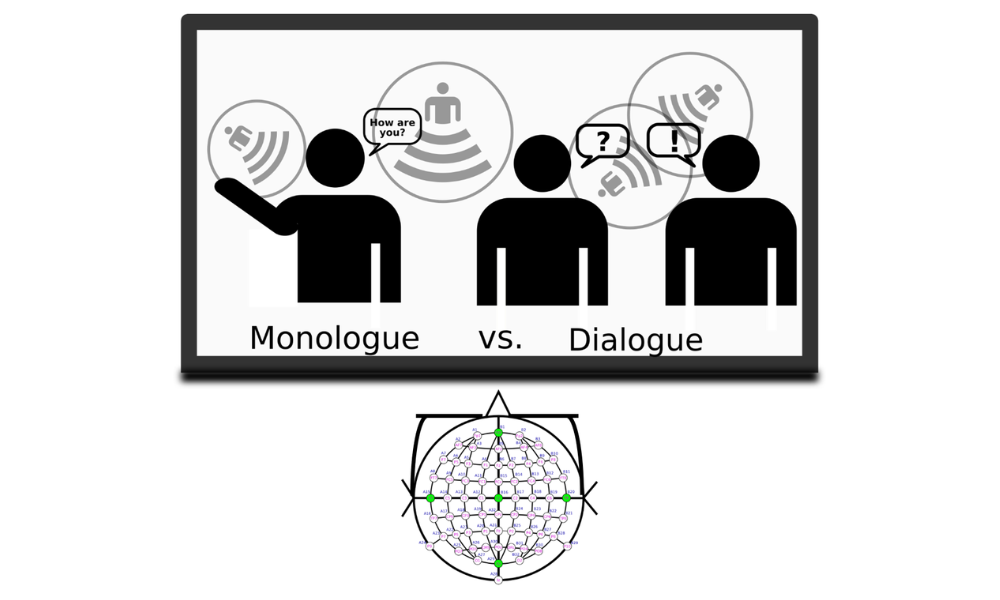
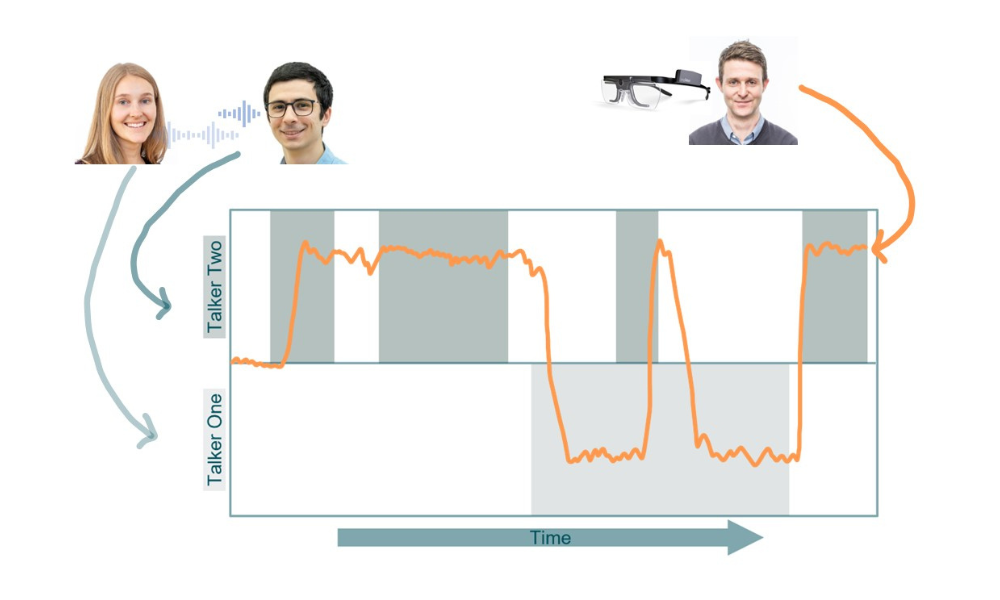
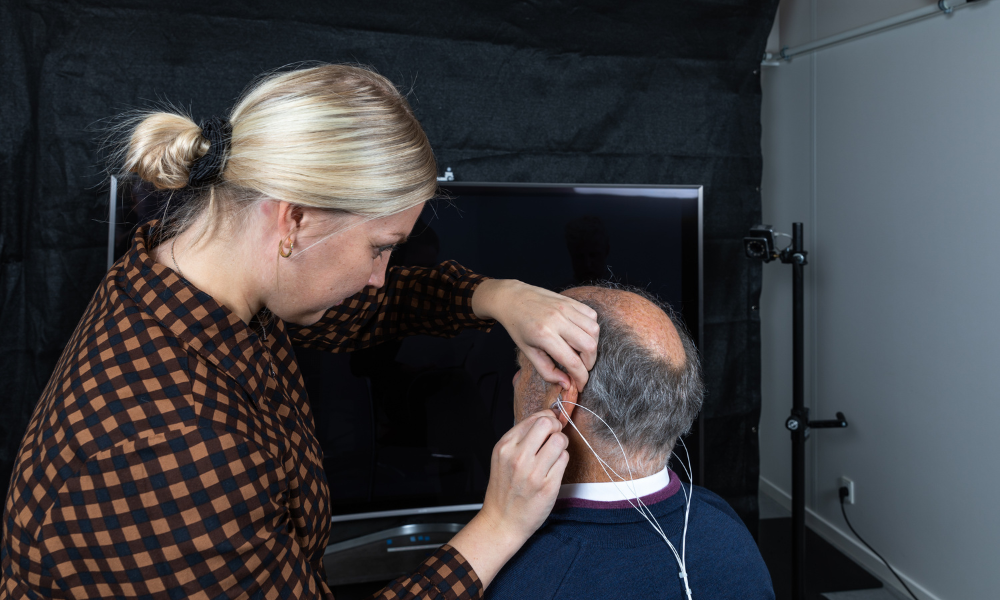
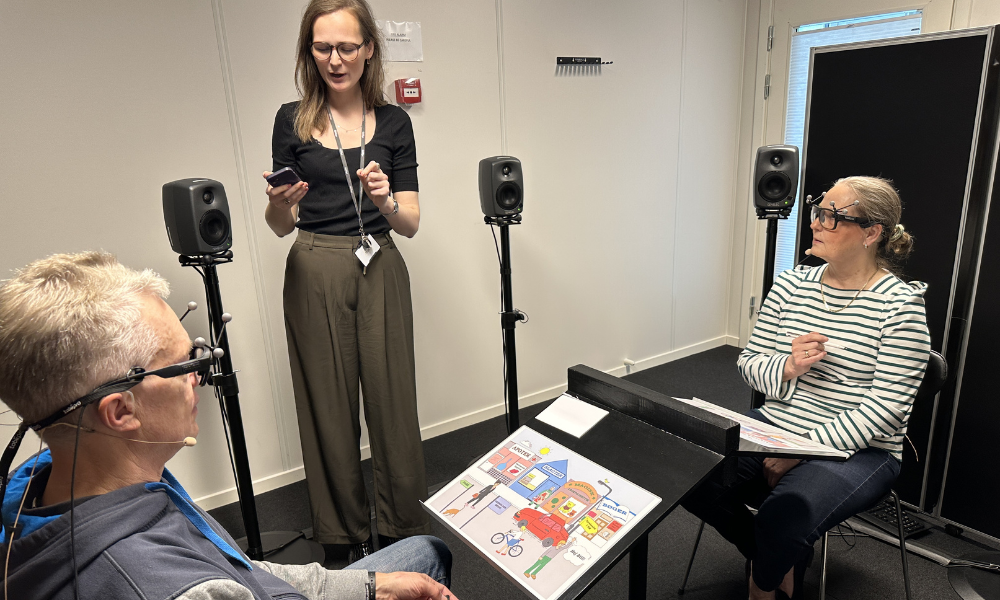
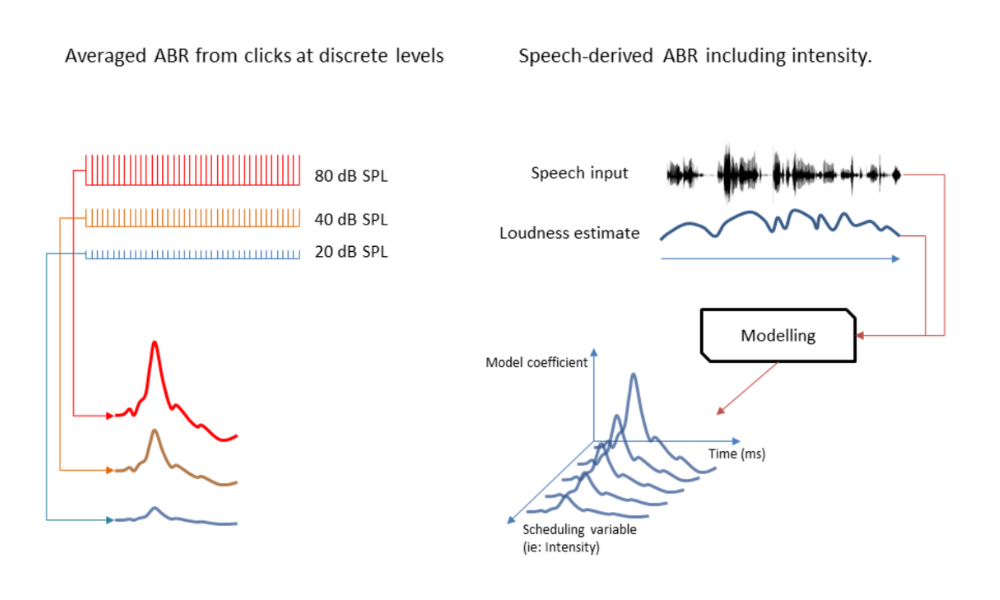
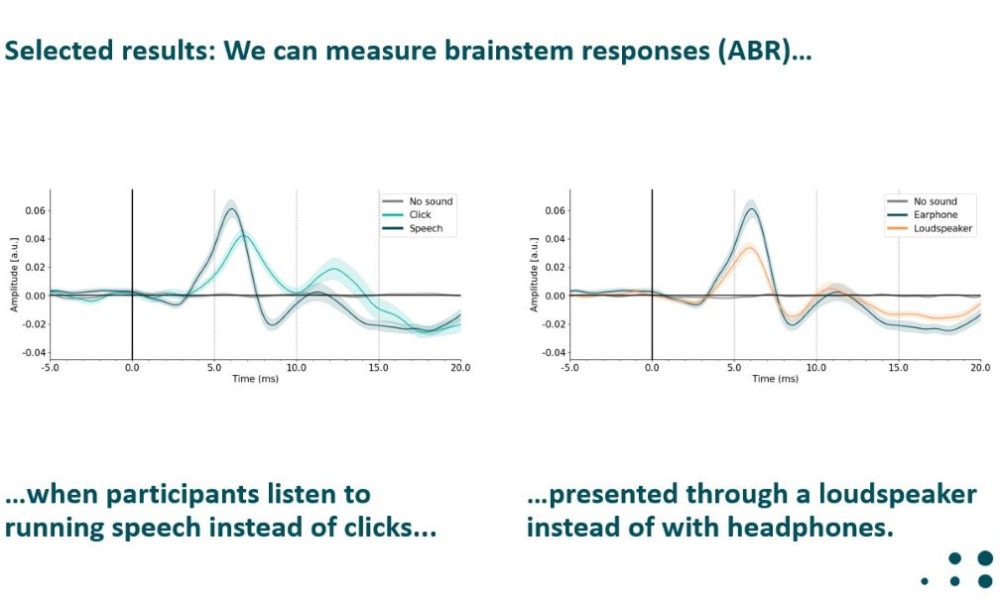
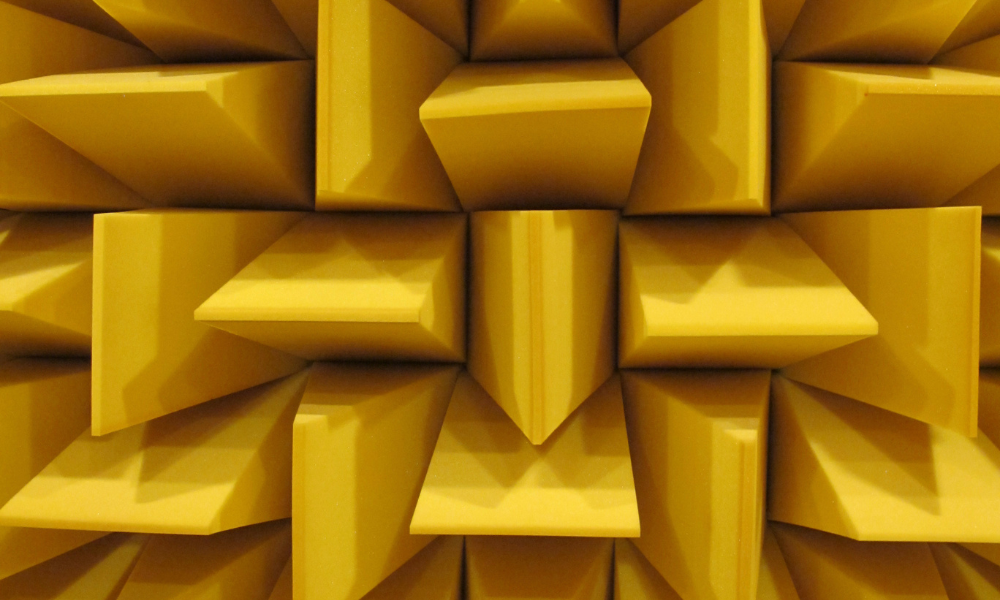




© 2024 Eriksholm – Designed by Aveo web&marketing